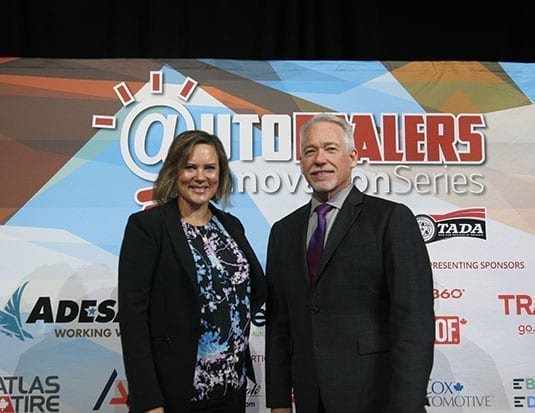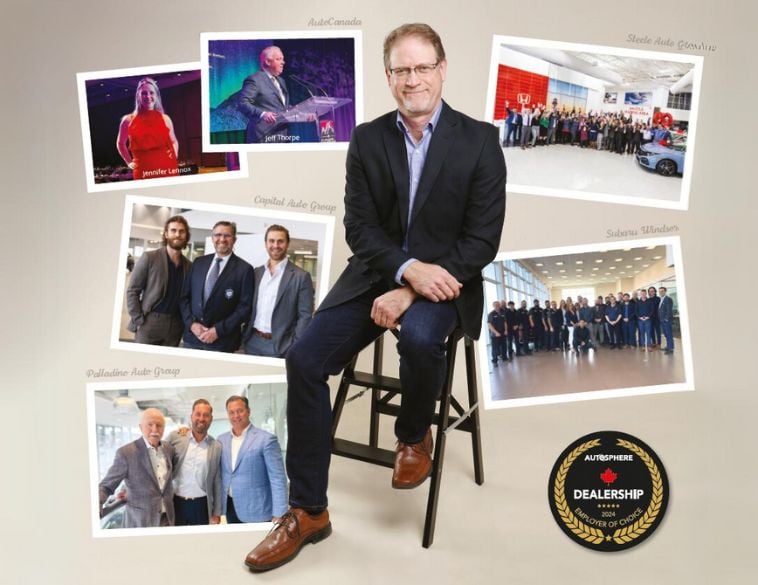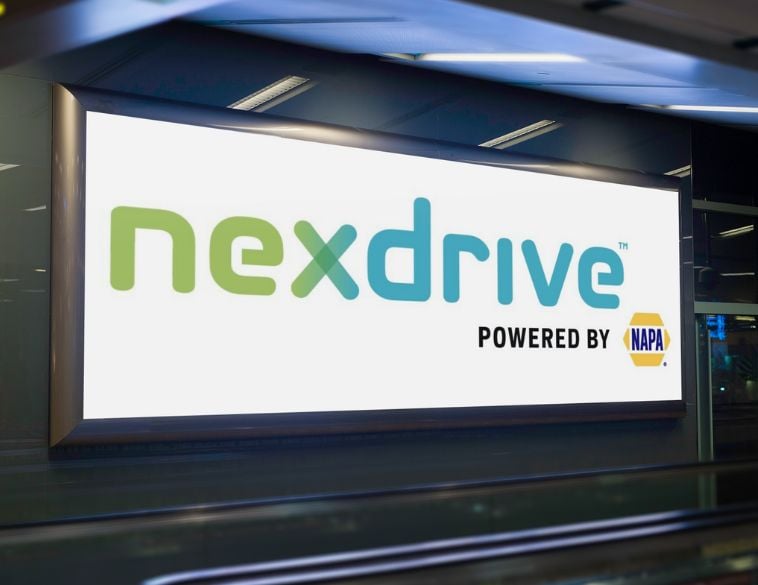On September 19 and 20, the Trillium Automobile Dealers Association (TADA) once again hosted its Auto Dealer Innovation Series in Ottawa and Toronto.
This time out, the content focused on several key aspects of the automotive retail experience, all built around the concept of frictionless transactions.
Kicking things off was Jim Roche, Senior Vice President of Sales, Marketing and Managed Services, Xtime.
Roche discussed some of the key factors influencing consumer behaviour, including loyalty and retention, while focusing on strategies dealers can use to balance loyalty and retention in the service department while also countering profit margin pressures.
Roche noted that one of the best strategies open to dealers, is focusing on retaining as many of their existing customers as they can. “The more you can rely on your customer base, the more you can throttle advertising cost,” he said.
Roche was keen to point out however, that retention and loyalty are not the same thing. “Loyalty is much more complex and nuanced than retention,” he said. “And it is really important to understand it thoroughly.” Roche talked about four different dimensions to loyalty when it comes to customers—defectors, hostages, mercenaries and loyalists.
Focus on loyalists
He noted that defectors, hostages and mercenaries aren’t the customers dealers should focus on since they are coming to you only because they have no option at that time (hostages); they don’t like you (defectors); or will only take what they want (mercenaries). Loyalists on the other hand, are where dealers should focus their time and effort.
“Loyalists spend more, they spend more frequently at higher margins and they spread a positive message about your business,” said Roche.
He noted that in today’s automotive retail environment, product differentiation and the ability to fix the car are now table stakes—what separates those dealers that are successful on the service side is delivering a positive and exceptional experience for customers.
Roche talked about leveraging technology to enhance the customer experience, whether it’s through simplified, 24-7 appointment booking on mobile devices allowing customers to schedule their next visit when they want or using software tools to maximize service capacity and convenience.
He also said a big factor for dealers today was transparency, including publishing service prices online. Roche noted that currently, a lot of dealers don’t publish service pricing due to fear and that they need to understand that while cost considerations are important consumers, even bigger is the value proposition you can offer. “You don’t need to offer the lowest prices,” he said, “but you need to be competitive and you need to sell value and sell confidence.”
He also noted that those dealers who embrace technology as part of the service experience, such as using tablets in the drive through and services such as email and text messaging promote greater trust and are far more likely to cultivate a loyal customer base.
“You want to provide a superior ownership experience to drive service retention which leads to owner loyalty—which drives profitable growth,” said Roche. “And the place to start is with online scheduling.”
Different factors
Teresa Bordenet, Senior Director, Business Development, Car Wars, provided a fascinating insight into the science behind the factors that influence male and female purchasing decisions.
She talked about how men and women have different expectations and prefer a different strategy when dealing with customer service agents. And with females influencing 80 percent of vehicle buying decisions today and 60 percent of overall household spending, it’s important that dealers understand their needs.
She said it is therefore important that dealers train their staff (both male and female) to handle interaction with customers of both sexes.
Bordenet said that females generally want to establish a rapport before making a firm decision and when asked if they want to book an appointment will more likely to commit to a firm day and time. She also noted that female shoppers also appreciate appointment confirmation calls.
Bordenet also said that often, male customer service representatives often struggle with female customers and that vice versa, male customers often struggle when dealing with female CSRs.
She said that it was important for dealers to understand the nuances of dealing with males and females and to develop effective sales scripts, while also taking a pro-active approach when it comes to getting customers to the right place as quickly as possible.
“A couple of changes to behaviour can be challenging,” she said, “but if you can show what it means to them and their pocketbook—you will see the rubber hit the road.”
Bordenet also conducted some live calls to actual dealerships, giving the audience a chance to rate the customer experience for themselves.
A new model
Brian Benstock, Vice President and General Manager, Paragon Honda in Woodside, N.Y., delivered a fascinating address.
Benstock’s dealership, based in Queens and a stone’s throw from Manhattan, has consistently ranked as the highest volume Acura and Honda dealer in the world.
Benstock talked about the disruption in retailing that’s happening and that for dealers, the traditional model of selling is not sustainable long term. He pointed to the fact that some once very prominent dealers within New York City have closed their doors, simply because they were no longer able to fulfill the needs of their customers.
“Consumers are changing the way they shop,” he said. “And 93 percent of them are using the Internet to buy a car.” He also stressed the power and importance of social media in today’s retail marketplace and that 45-54-year-olds (key vehicle purchasers) represent the biggest growth in terms of social media usage. “If Facebook was a country, it would now rank as the third largest in the world,” he said.
Benstock talked about the power of reputation and how 90 percent of customers trust peer recommendations when it comes to acquiring products or services.
He talked about how firms such as Uber have decimated car ownership in major metro areas like New York City “if you do less than 11,000 miles per year, it’s less expensive to use Uber than lease a car,” he said, as well as Tesla’s approach to vehicle retailing, which uses corporately owned stores instead of relying on franchised dealers to move metal.
He also talked about vehicle electrification and that with fixes available over the Internet, consumers will be less inclined to bring their car to a dealer for service updates or repairs, negatively impacting margins.
Benstock noted that while 6,300 retail locations disappeared in the U.S. last year, car dealerships will likely survive, despite some media predictions.
“There will be fewer of us but we will be selling more cars,” he said. “The big stores are going to get bigger and the smaller ones are going to find it harder to survive.”
Customers’ needs
He stressed the importance of understanding customers’ needs as the number one priority and not what the business itself thinks are important. “Apple and Amazon are not at NADA,” he said “They are not looking at our CRM, DMS or direct mail programs.”
Benstock talked about how time has become our most valuable commodity and any way a dealer can improve convenience for the customer such as bringing the dealership to the customer can really be a game changer. He discussed concepts such as 24-hour pick up and deliver service for customers, such as the one Paragon uses with RedCap and even an occasion when the dealer brought a brand-new car to the customer at the hospital after his wife had given birth.
He talked about streamlining the sales process down to just two minutes via clicks on a tablet instead of taking four hours and why the success of companies like Apple and Google is down to convenience.
“People rate their time more than currency today,” Benstock said. “And by bringing the dealership to the customer we give our customers flexibility and control.”
Additional highlights from the latest Auto Dealer Innovation Series included an update on the economy including rising interest rates and the possible impact of tariffs from RBC Senior Economist Nathan Janzen, as well as some initiatives underway at TADA, including a new Women in Automotive Mentoring program.
[wds id=”680″]


